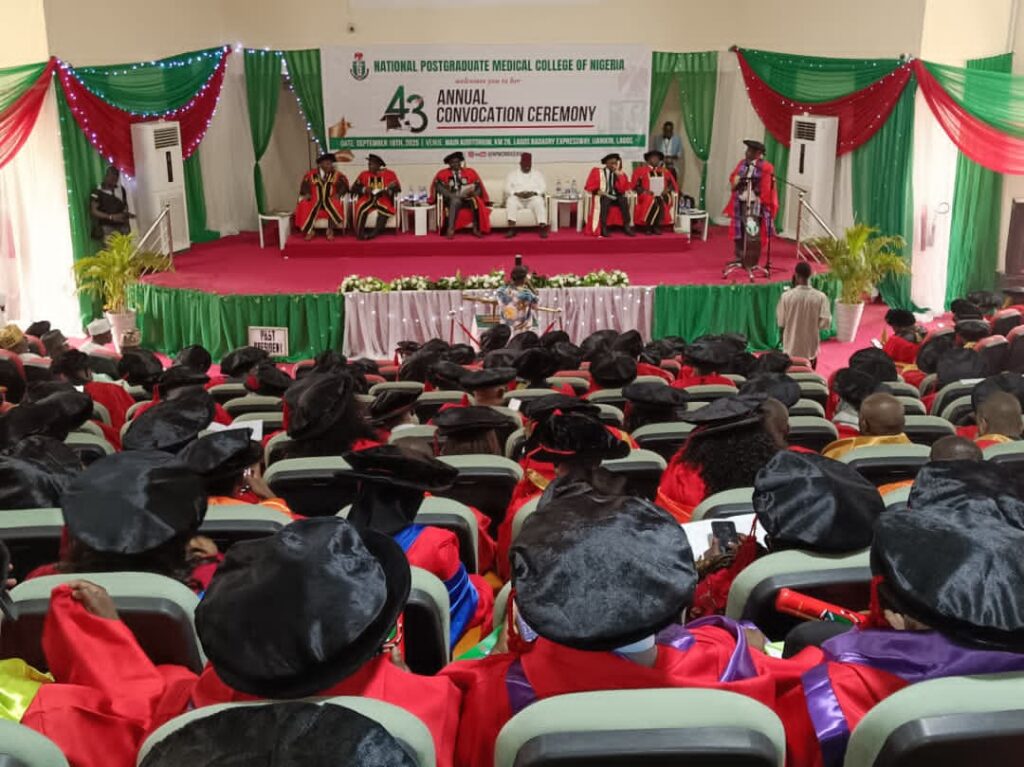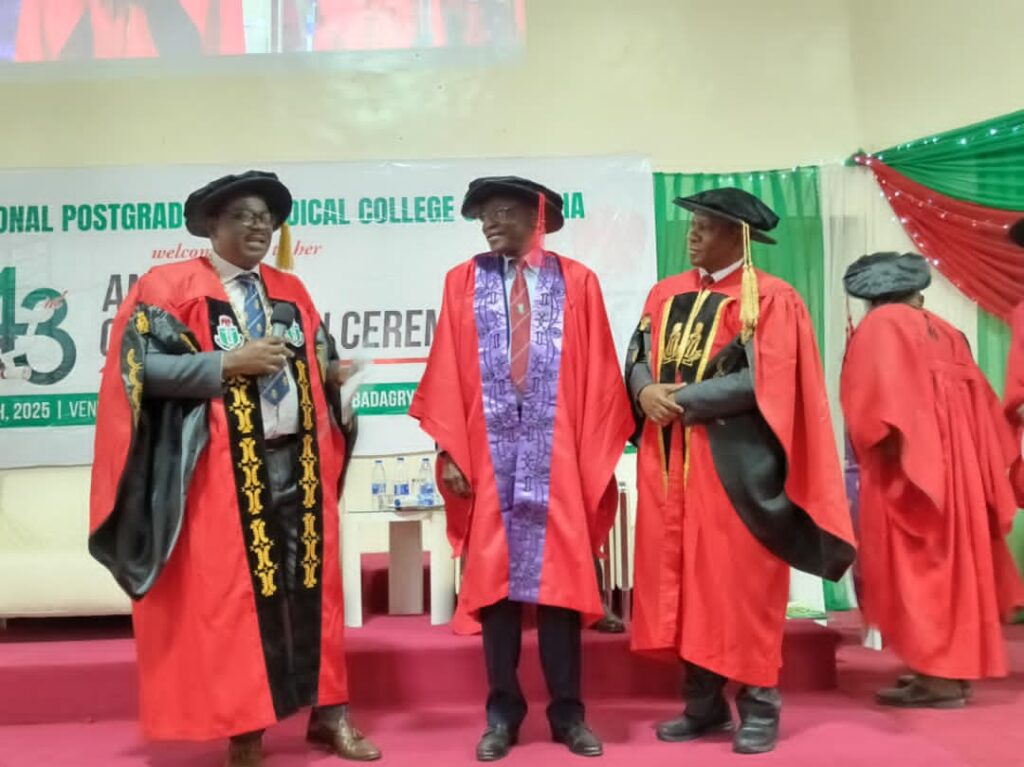Standard setting replaces traditional pass mark as over 400 MDs awarded since inception; government promises funding and infrastructure upgrades.
By Bunmi Yekini

The National Postgraduate Medical College of Nigeria (NPMCN) has introduced sweeping reforms to its examination system, strengthened its academic Doctor of Medicine (MD) programme, and secured new commitments of support from the Federal Government, all announced at its 43rd Convocation Ceremony.
For decades, postgraduate medical examinations in Nigeria operated on the traditional model of a fixed pass mark, usually pegged at 50 percent. This system, while simple, often drew criticism for not fully capturing candidates’ competencies. Now, the College has adopted a global best-practice approach known as “standard setting,” which tailors the pass threshold to reflect the realities of each examination.
Delivering the Convocation Lecture, Prof. Kadiri explained the significance of this innovation. “Standard setting is criterion-referenced. With criterion referencing, feedback validity is guaranteed and the candidate can feel confident and satisfied that he had demonstrated the required competence,” he said.
The lecturer noted that standard setting represents a shift from arbitrary scoring to evidence-based assessment. Instead of a rigid pass mark, examiners establish the minimum acceptable performance level for each examination session, ensuring fairness, transparency, and alignment with international benchmarks.

“This reform is about quality assurance,” Prof. Kadiri said. “It gives both the College and the candidate confidence that the outcomes truly reflect ability and readiness for specialist practice.”
Alongside examination reforms, the College celebrated the steady growth of its Doctor of Medicine (MD) programme. Established as a higher academic qualification for specialists, the MD degree has become an important pathway for medical professionals seeking to combine clinical excellence with academic advancement.
This year, 34 new MDs were conferred, bringing the cumulative number of graduates to over 400 since the programme’s inception. Candidates can pursue the degree through three distinct tracks, thesis, coursework, or publication, providing flexibility for diverse academic and professional goals.
“The MD is a higher academic degree, places the holder in an enhanced position and provides a competitive advantage,” Prof. Kadiri said. He emphasised that the programme has elevated the profile of Nigerian-trained specialists and broadened their opportunities in both academia and clinical leadership.
The Convocation also spotlighted the Federal Government’s renewed pledge to support postgraduate medical training. Representing the Minister of Health and Social Welfare, Dr. Saludeen underscored the centrality of the College to Nigeria’s health system.
“Without a strong and well-trained workforce, no health system can thrive. This makes the role of the National Postgraduate Medical College of Nigeria absolutely indispensable,” he said.
According to Dr. Saludeen, the government is committed to funding initiatives that will enhance specialist training nationwide. These include the development of modern simulation centres to support practical learning, upgrades of College infrastructure, and expansion of residency training opportunities to meet Nigeria’s growing healthcare needs.
The government’s assurances come at a critical time. Nigeria’s health sector continues to grapple with limited resources, an overstretched workforce, and the migration of doctors and specialists abroad. Against this backdrop, the College’s reforms and programmes are designed to retain talent, elevate training standards, and ensure that those who remain are equipped to provide world-class care.

For the graduands, the announcements offered reassurance that their hard work is recognised at the highest levels of government and that the institutions supporting their careers are committed to continuous improvement.
Observers at the convocation noted that the combination of new assessment methods, academic strengthening, and government backing marks a turning point in postgraduate medical education. The reforms, they said, show a system ready to evolve in response to both internal challenges and global expectations.
As the event closed, the message was clear: the College is determined to maintain its leadership role in training Nigeria’s medical specialists, while also aligning with international best practices. With government support, the MD programme’s continued growth, and the embrace of modern examination standards, the NPMCN is positioning itself not just as a national leader, but as an institution of global relevance.
